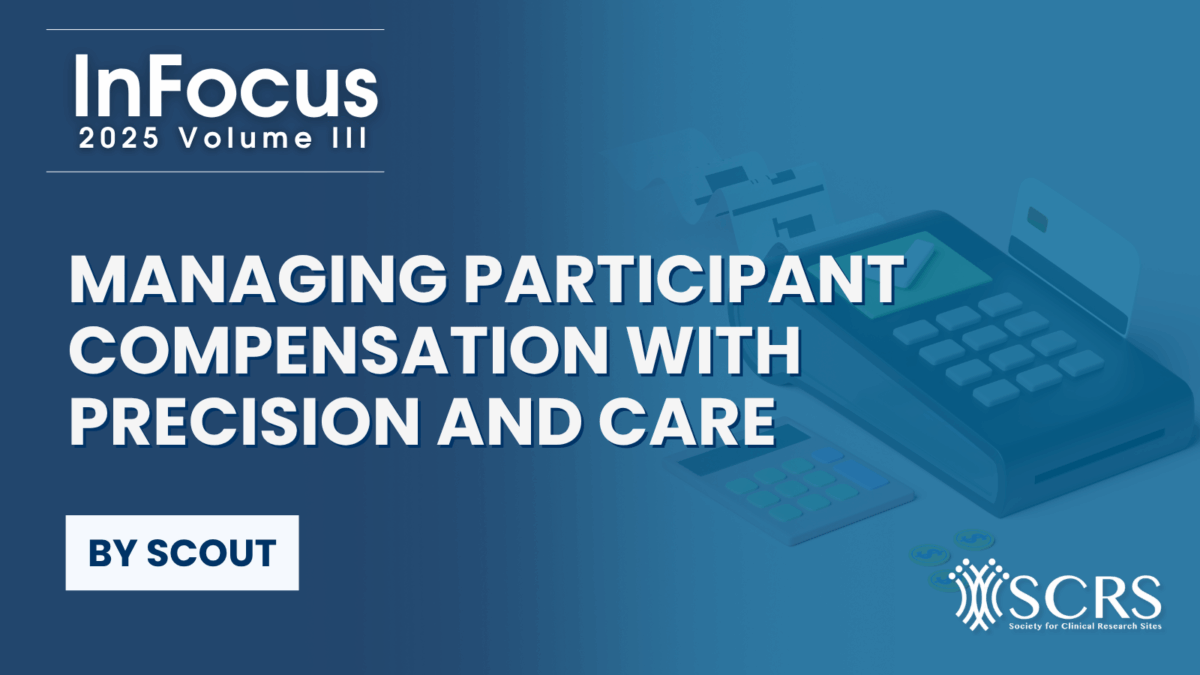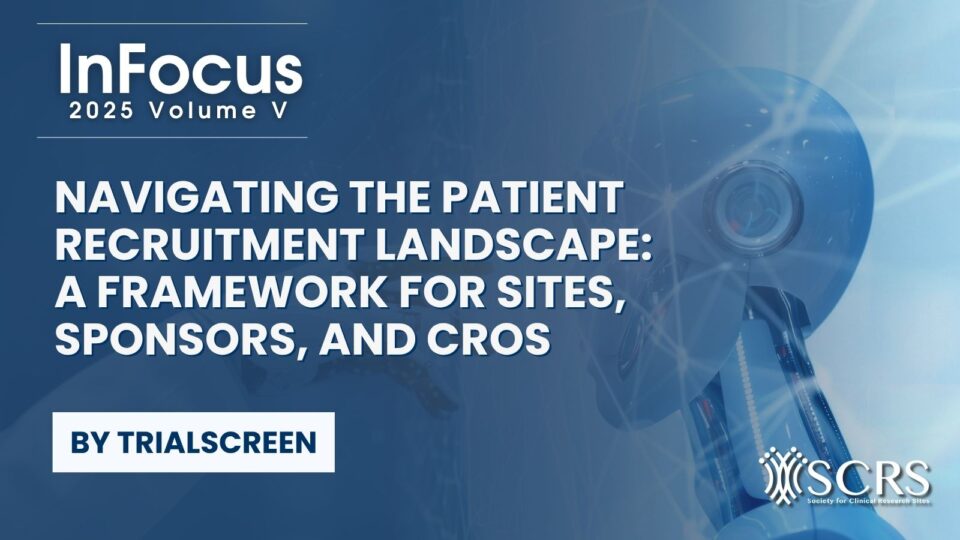Managing Participant Compensation with Precision and Care

Managing participant compensation isn’t just another box to check for clinical trial sites. It’s a foundational element that shapes trust, retention, and the overall success of a study. When payments feel detached or fail to address participants’ unique circumstances, the consequences extend beyond paperwork. They undermine trust, strain relationships, and complicate operations.
This is why a one-size-fits-all approach won’t suffice. A thoughtful and participant-centered compensation strategy doesn’t just elevate the patient experience. It streamlines operations and safeguards the site’s position as a trusted partner in research.
The Site’s Pivotal Role
For clinical trial participants, the site is the heartbeat of the entire experience. Every interaction—from phone calls to check-ins—influences how patients perceive the trial. Beyond simply being a research facility, to many the site is a source of support and connection.
This amplifies the responsibility on sites to ensure every aspect of the trial runs smoothly, including participant compensation. Often overlooked, this element carries significant weight. Missteps in compensation can jeopardize retention, disrupt the trial’s progress, and tarnish the site’s reputation.
Why Compensation Matters
Compensation is more than reimbursement. For participants, it’s a signal that their time and contributions are genuinely valued. When something as vital as payment is mishandled, it sends the wrong message.
Key Impacts of Flawed Compensation Practices
- Trust and Retention
Late or inconsistent payments risk breaking the bond of trust, making participants less inclined to complete the trial. Attrition isn’t just a logistical setback; it damages the credibility of the study and the site. - Reputational Damage
A single poor experience with compensation can ripple out beyond the participant. Communities and potential patients take note, affecting the site’s ability to engage effectively in the future.
Sites that prioritize professional, seamless payment processes foster trust, elevating both the patient experience and the study outcomes.
Where the Pressure Falls
Clinical trial sites often carry the burden of being the visible face of research. Most participants don’t interact with sponsors. For them, the site represents the entire operation.
This means any issues with compensation—even those outside the site’s control—are often attributed to the site. Such blame can intensify the strain on already busy staff. To participants, their trust in the process hinges on how compensation is managed. Get it right, and it’s a non-issue. Get it wrong, and it risks derailing the entire experience.
Compensation management demands more than line-item budgeting. It’s about investing in trust, retention, and the reputation that sites work hard to uphold.
The Case for a Holistic Approach
Managing participant compensation isn’t merely an administrative challenge. It’s a human one. Rigid systems and automated processes may handle large-scale logistics, but they miss the nuances of individual participants. These gaps leave sites grappling with problems that could have been avoided.
Beyond Automation
Automation offers speed and efficiency but often lacks adaptability. For example, a participant with childcare challenges or unexpected travel costs may not fit neatly into preset compensation formulas. When participants’ realities go unaddressed, it undermines their experience.
Flexibility is key. Compensation strategies that adjust to fit participants’ personal circumstances foster inclusivity and respect.
Why It Matters
Participants bring unique challenges to the table.
- Some travel significant distances.
- Others miss work or incur extra expenses to participate.
Cookie-cutter compensation models fail to address these realities. Customized solutions ensure participants feel acknowledged, increasing engagement and satisfaction.
Learn more about effective payment practices that enhance both participant satisfaction and operational efficiency.
Cultural Sensitivity Enhances Trust
When trials span diverse regions, the need for cultural understanding becomes apparent. Compensation expectations vary widely across communities. Ignoring such nuances creates unnecessary friction.
Adapting to local norms shows respect and safeguards trust. For example, simple reimbursements for overlooked expenses might carry significant weight in certain regions. These tailored adjustments can build rapport and encourage greater participation, ultimately benefiting the trial.
Streamlining for Sites
Participant compensation also takes a toll on site operations. Payment tracking, regulatory compliance, and administrative oversight can overwhelm staff who should be focused on patient care. Effective strategies simplify these logistical demands while remaining participant-centered.
Easing the Burden
To reduce this operational strain, sites can adopt practices that cut through complexity without compromising quality.
- Streamlined Processes: Digital tools for payment tracking minimize errors and simplify management.
- Transparent Policies: Clear communication with participants eliminates confusion and fosters trust.
- Dedicated Support: Knowledgeable resources address payment issues quickly, keeping participants satisfied.
- Tailored Solutions: Flexibility in covering participant-specific needs, like travel reimbursements, ensures no one is overlooked.
These measures offer relief to staff while improving participant satisfaction, creating a stable foundation for trial success.
Regional and Regulatory Considerations
Compensation practices vary widely depending on location, adding another layer of complexity for clinical trial sites. Properly navigating these regional and regulatory differences is crucial for smooth operations.
Challenges Sites Face
- Currency Differences: Exchange rate fluctuations can make consistent payments tricky, particularly for multinational trials.
- Regulatory Variations: Laws governing compensation differ by country, requiring careful attention to ensure compliance.
Why It Matters
- Enhanced Patient Experience: Aligning compensation with regional norms reassures participants and supports retention.
- Improved Site Reputation: Sites that adapt to local practices gain credibility with participants and sponsors alike.
- Compliance Made Simple: Proactively addressing regulation-specific requirements reduces risks of penalties or delays.
Recognizing and respecting these differences allows sites to operate confidently while fostering stronger relationships with participants.
Final Thoughts
Participant compensation is a linchpin in successful trials. It’s not just about payments. It’s a symbol of respect, a tool to build trust, and a measure of the care sites extend to their patients.
By adopting a patient-first, adaptable approach, sites can alleviate operational burdens and reinforce their reputation as compassionate, professional research centers.
Contributor
KimberLee Heidmann is Scout’s Executive Vice President, Quality and Regulatory, Data Protection Officer. She joined the organization in 2001 and has served the life sciences in multiple capacities since 1998. Click here to connect with KimberLee on LinkedIn.



